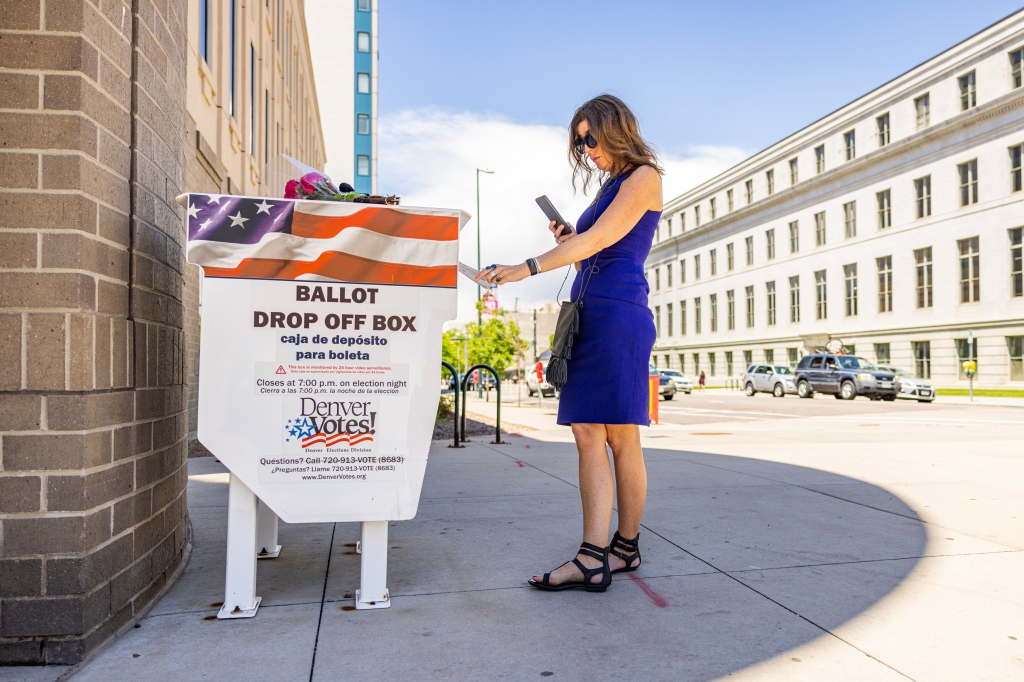
Six new members headed to Denver City Council after runoff election
Last Updated on June 8, 2023 by Admin
[ad_1]

Nearly half of Denver’s City Council will consist of fresh faces after its newest members take office next month, making for a legislative body that’s still relatively left-leaning but also likely more collaborative than it has been in the past, experts say.
The closest of the runoff elections decided Tuesday went to Shontel Lewis who held a narrow lead over Brad Revare for the council’s District 8 seat. As of Wednesday afternoon, Lewis had 51.22% of the vote to Revare’s 48.78%, unofficial results show. A total of 356 votes separated the two candidates, well outside the automatic recount threshold of 37 votes.
Throughout the April election and June runoff only one incumbent council member – District 9’s Candi CdeBaca – lost their seat. Unofficial results from the Denver Clerk and Recorder’s Office show that Darrell Watson held a 60.71% lead to CdeBaca’s 39.29%.
And incumbent District 10 Councilman Chris Hinds fended off a challenge from Shannon Hoffman with a 55.37% lead to her 44.63%.
The results appear to be less a repudiation of progressive candidates as much as a desire from voters to elect candidates who projected a desire for collaboration and compromise, Paul Teske, dean of the University of Colorado Denver’s School of Public Affairs.
“Denver’s a liberal city, left of center,” Teske said. “And with this City Council race we’re just talking about how far left.”
If the biggest upset of the election season is CdeBaca’s loss to Watson, Teske noted that not only had the councilwoman run into repeated conflicts with her colleagues but also she had a well-funded and experienced opponent.
Council President Jamie Torres expressed optimism for the incoming class of council members, and said the first few months will likely set the groundwork for their time in office, cementing priorities and learning how to work with incoming Mayor Mike Johnston’s new administration.
Torres, who ran unopposed in the April election, recalled that just months after she took office the COVID-19 pandemic shut the entire country down.
“Barring any major national catastrophe, they’re going to have the time and space to really connect with their constituents in a way that our class didn’t,” Torres said.
The council’s newest lineup will also be even more diverse, Torres said, which means greater representation for Denverites.
“Six Latinas, the most this council has ever seen,” Torres said.
In addition, Watson is the first openly gay man elected to the council.
“There’s a really amazing representative dynamic that this council has brought to the table,” Torres added.
The councilwoman said she’s eager to get to work with her new colleagues and the incoming administration.
“Nobody works alone on this council,” Torres said. “And when you do it’s difficult and likely unsuccessful.”
That message of collaboration from candidates likely landed with voters who have grown frustrated over a lack of substantial progress with homelessness, affordable housing and public safety in recent years, Robert Preuhs, chair of Metropolitan State University’s Political Science Department, said.
“I think the voters really were looking for some alternative,” Preuhs said. “Usually that becomes a little more of a moderate, perhaps business-oriented, traditional approach to things.”
Recent redistricting also likely hurt CdeBaca in particular, pushing the boundaries of District 9 to include north and south Park Hill, Preuhs added.
Despite the turnover, Torres said the incoming council will have the energy and willingness to work with Johnston’s administration and tackle the issues at hand.
“Things are so serious right now, we’ve got to hit the ground running,” she said.
[ad_2]
Source link




